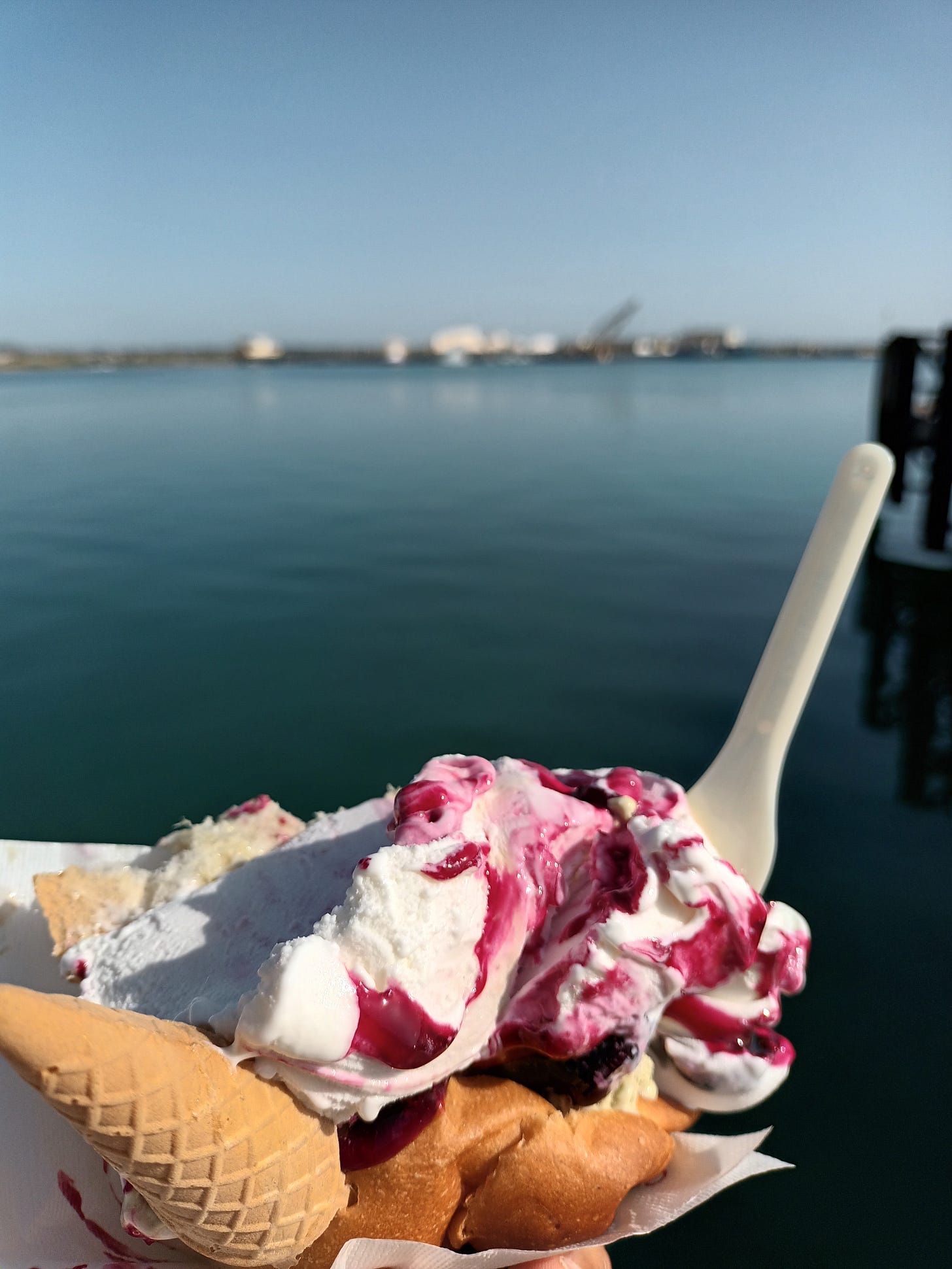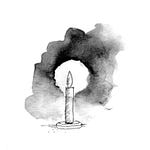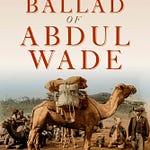For a large part of my life paper napkins have gone completely unnoticed, the commas and full stops of countless meals. But over the last few weeks while travelling through Italy I’ve come to realise how fortunate we are in Australia regarding the quality of our paper napkins. There is no other way to put it then to say that Italy’s napkins are abysmal. They smear, they scratch, they chafe. Do not try to blow your nose with an Italian paper napkin. They have all the absorbent qualities of the marble columns of the San Marco Basilica. And in a nation where every breakfast seems to end with me covered in a fine dusting of icing sugar, and every gelato seems to find its way to my fingers, the performance of this little square of neatly folded paper has assumed high importance.
But it’s not just the napkins that are lacking here. Street signage is another underperforming area of Italian design. So dire is the situation in Venice that a second set of signs has had to be installed above the originals to guide you in the general direction of where you need to be. I don’t believe that the napkin situation or the wayfinding flaws are by any means coincidence, they are the result of very deliberate choices and within that process of choosing I think we can find some important lessons for the rest of us.
There are many ways to get fat in Sicily, and I was determined to try them all. No meal in Sicily is complete without a glass (or more) of wine and each wine list boasted an impressive array of wines: Zbibbo, Frappato, Inzolia, Perricone, Nerello Mascalese. The list goes on, but I soon noticed that despite the diverse range of grape varieties, there was very little diversity of region. By very little, I mean none. Every wine was from Sicily. Nothing from mainland Italy, much less from France, Spain or the New World.
And this localism did not just apply to the wine. The menus consisted of variations on just a few ingredients. Oranges, lemons, wild fennel, sultanas, tuna, sardines, swordfish, olives, tomatoes, almonds, pistachios. A hundred years ago I could understand this, but today, when asparagus can be flown in from Israel, mangos from Peru? It matters not, if it wasn’t grown in Sicily, there was no chance of finding it on the menu. The Sicilians had chosen, and they chose local.
In 1979, psychologists Amos Tversky and Daniel Kahneman published their paper on prospect theory, a paper that would earn Kahneman the Nobel Memorial Prize in Economics in 2002 (Tversky had died in 1996). Among other things, prospect theory explained how when making decisions, humans prioritise avoiding potential losses over making potential gains. Tversky and Kahneman termed it Loss Aversion and Kahneman later explained it in a much simpler way: “People hate losing.”
Tversky and Kahneman also found that when thinking about decisions, humans valued the near future (tomorrow) over the distant future (next year) and would make decisions in accordance with this value hierarchy, preferring to avoid a loss tomorrow than achieve a gain in a year’s time.
We make choices every day and most of the time we are confident that we are making the right choices. But prospect theory tells us that we rarely are. We are making choices not in our best long-term interest, but to limit our short-term losses, a default embedded in the historic coding of our DNA (studies have shown that primates suffer from the same bad decision-making traits).
The modern world is demanding. We must be good husbands, good wives, good parents, good children, good employers, good employees. We must look good, stay fit, be happy, eat less of that and more of this. And this world would have us believe that all of this is achievable. We can have it all. But we can’t.
Having it all is a lie and the consequence of believing this lie is that we move forward, constantly making decisions that we think are in our best interests but are really only avoiding short term losses. The losses that we avoid are the feelings of inadequacy, the feeling of missing out on the promotion, the salary, the house, the holiday; the feeling of not being good enough. “Of course I am good enough! I am doing it all!” our choices seem to say. But in following this path we are forgoing the long-term gains of better mental health, wellbeing, balance, the particular joy of not trying to do and be everything, of not caring about everything, the joy of delighting fully in the things that we do choose to do.
Even knowing this, I am still making bad decisions. Italy, I now know, is a country that forces you to make choices. There is just too much to see. My mistake was trying to do it all. As a consequence, I have had to hit pause on my travels, take a week to do nothing, recuperate. The exhaustion that I currently feel is a result of my inability to say no, driven by the fear of missing out. I know that this is the cause because I have been here before; different choices and different decisions back then but the same pattern of behaviour and the same result.
And this, I believe, is the lesson the Italians have learnt: They know how to choose. They don’t care about everything, they don’t try to do everything, they know they can’t have everything. They apportion their energies accordingly, content to absorb short term losses for the greater long-term gains. Are paper napkins really that important when the gelato, (which they do care about, they really care about it!) is so good that you rarely spill any and any that does find its way to your fingers is a pleasure to lick off? Does finding your way really matter when getting lost in the streets of Venice is such a pleasure? It is tempting to say that the Sicilians, living and dying in a bubble of hyper localism without ever having tried a Barossa Valley Shiraz or the privilege of eating fresh asparagus all year round, are missing out on something. But do they care? Not a jot.
If you enjoyed this post please leave a comment or hit the heart button. Doing so helps other people find it on Substack (and gives me a pleasant little huge dopamine hit). Thank you.


















Share this post